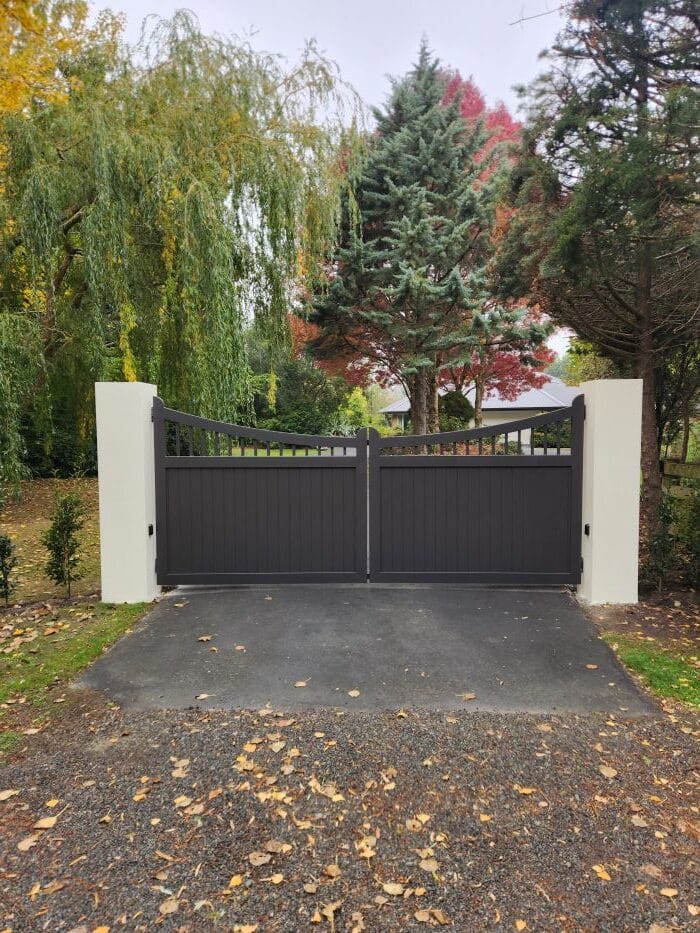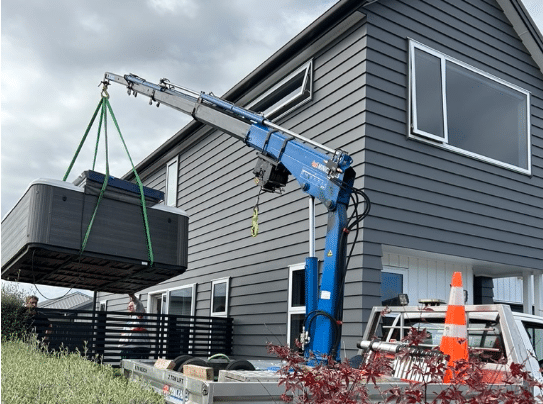Understanding Christchurch’s Climate and Its Impact on Automatic Gates
Rainfall, Temperature Swings, and Seasonal Frost
Christchurch experiences a mix of weather conditions throughout the year, from chilly frosts and occasional snow in winter to hot, dry days in summer. With average annual rainfall close to 600mm and temperature fluctuations between seasons, automatic gates in this region are exposed to conditions that can impact their longevity and performance.
Moisture, especially during prolonged periods of rain or frost, can creep into sensitive components, corrode metal, and swell wooden gate structures.
How Moisture and Debris Affect Gate Components
Moisture buildup and pooling water around the base of your gate can lead to rust in metal parts or rot in timber frames. Tracks may become clogged with dirt and organic debris, especially after autumn leaf fall or during high winds, which are common in Canterbury.
These materials can obstruct the smooth operation of sliding gates and place strain on the motor and drive systems.
The Role of Wind and UV Exposure in Gate Wear
Strong northwesterlies and coastal winds can place repeated pressure on your gate’s structure, especially if it’s wide or solid-faced. Swing gates are particularly susceptible to wind resistance, which can affect alignment and motor calibration.
Meanwhile, UV exposure in summer can fade paint, crack seals, and degrade plastic housings on keypads and sensors.
Routine Maintenance Tips for Automatic Gates
Cleaning Tracks, Hinges, and Moving Parts Regularly
A key part of maintaining your gate year-round is keeping it clean. For sliding gates, ensure tracks are free of stones, leaves, and mud by sweeping or rinsing them out every few weeks. Hinges and pivot points on swing gates should be cleared of cobwebs, dust, and grime. This helps reduce drag on the motor and minimises wear on moving components.
Lubricating Mechanisms to Prevent Rust and Seizing
Every few months, apply a non-greasy silicone-based lubricant to moving parts such as hinges, rollers, and gear assemblies. Avoid heavy oils or greases that attract dirt and harden in cold weather.
Regular lubrication prevents metal-on-metal friction and protects against corrosion caused by damp Christchurch air, especially in winter.
Checking and Replacing Weatherproof Seals
Inspect any rubber seals or covers around motors, junction boxes, and wiring terminals. These seals can become brittle with age or deteriorate after exposure to UV rays and fluctuating temperatures.
Replace cracked or missing gaskets promptly to prevent moisture ingress that could short-circuit electronics or cause rust.

Electrical and Mechanical System Checks
Inspecting Motors, Sensors, and Wiring for Weather Damage
Motor housings should remain sealed and free of dirt or standing water. Periodically check that photoelectric sensors are clean and properly aligned. Debris, spider webs, or fogged lenses can cause gate malfunctions. Look for signs of fraying or discolouration in exposed wiring, which may indicate water damage or overheating.
Ensuring Control Panels and Keypads Are Weather-Sealed
Outdoor keypads and control panels must be securely enclosed in weatherproof casings. Look for loose panels, cracked casings, or moisture inside LCDs. If your gate includes intercoms or smartphone-integrated openers, test their functionality regularly to ensure they remain responsive in all weather conditions.
Resetting or Reprogramming During Power Fluctuations
Power outages or voltage drops, which can occur during storms or strong winds, may cause gate systems to lose settings or go offline. Be prepared to reset or reprogram your gate controller, and consider installing a backup battery or uninterruptible power supply to maintain operation during outages.
Preventative Measures for Harsh Weather Conditions
Installing Protective Covers or Housings
Protective shrouds or housings over motors and electronics help shield them from wind-driven rain, hail, and dust. Custom covers can also be added to keypad stands and intercoms for additional weather protection. These small additions can prevent long-term damage and extend component life.
Adjusting Gate Sensitivity for Wind Resistance
If your gate is subject to strong wind gusts, particularly in open or coastal areas of Christchurch, you may need to adjust motor sensitivity settings. Some automatic gate systems allow for wind compensation features that help reduce false stops or strain on the motor when resistance is encountered.
Using Surge Protectors to Guard Against Power Surges
A power surge caused by lightning or a faulty power grid can destroy gate control boards and automation systems. Installing a surge protector at the power source is a smart and inexpensive way to protect your investment, especially during Canterbury’s stormier months.
Seasonal Maintenance Checklist
Pre-Winter Inspections and Cold-Weather Prep
Before winter sets in, inspect all hardware and seals, lubricate moving parts, and clear out drainage areas around the gate. Apply anti-rust treatments to vulnerable metal surfaces and check that your gate can operate smoothly in cold or damp conditions without sticking or hesitating.
Post-Summer Cleaning to Remove Dust and Pollen
At the end of summer, clean your gate thoroughly to remove baked-on dust, bird droppings, and pollen build-up. Check UV-exposed parts for fading or cracking, especially on painted surfaces and rubber seals, and touch up any protective coatings if needed.
Mid-Year Checks for Mechanical Wear
Mid-year is a good time to schedule a professional inspection or do a detailed review of your gate system. Look for signs of mechanical fatigue, such as jerky movement, unusual noises, or slow response times. Early detection of issues helps avoid emergency callouts later in the year.
When to Call a Christchurch Professional
Signs You Shouldn’t Ignore
Grinding noises, sluggish operation, repeated sensor failures, or a gate that won’t fully open or close are all signs that professional intervention is needed. Ignoring these issues can lead to motor burnout or structural damage.
Local Experts Familiar With Christchurch Conditions
Engaging a Christchurch-based gate technician ensures you’re working with someone who understands local weather patterns, soil conditions, and council regulations. These professionals can recommend climate-appropriate maintenance schedules and upgrades.
Importance of Annual Servicing
Annual servicing by a qualified technician can uncover early signs of wear and tear, recalibrate sensors, and test backup systems. It’s a small investment that can extend your gate’s lifespan and improve reliability during Canterbury’s wetter or windier months.
Keeping Your Gate Running Smoothly Year-Round
Benefits of Proactive Maintenance
Preventative maintenance saves you from costly emergency repairs, keeps your property secure, and ensures your automatic gate functions efficiently throughout the year. A well-maintained gate also adds curb appeal and value to your Christchurch home or business.
Saving on Repairs and Extending Gate Life
Regular upkeep reduces wear on the motor and mechanical parts, lowering long-term repair costs. With consistent attention, your automatic gate can last 15 to 20 years or more, even in Christchurch’s changing climate.




